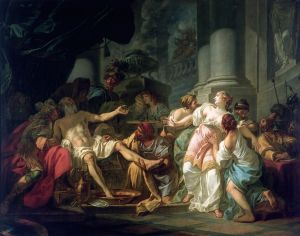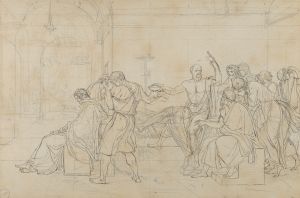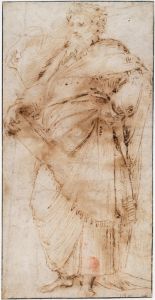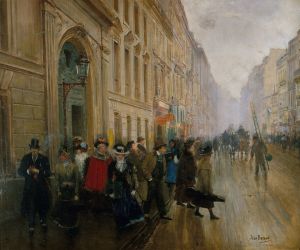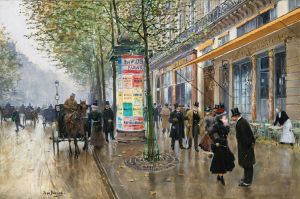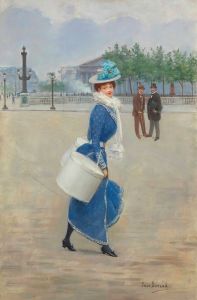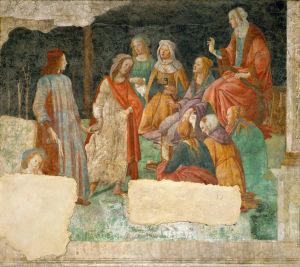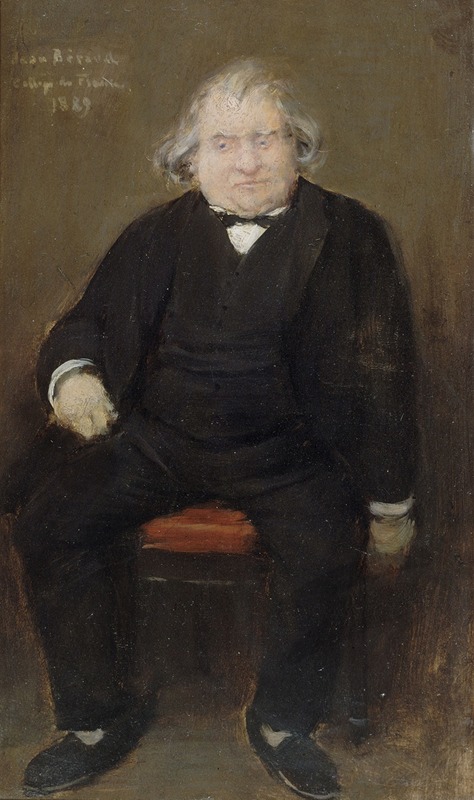
Portrait d’Ernest Renan , philosophe
A hand-painted replica of Jean Béraud’s masterpiece Portrait d’Ernest Renan , philosophe, meticulously crafted by professional artists to capture the true essence of the original. Each piece is created with museum-quality canvas and rare mineral pigments, carefully painted by experienced artists with delicate brushstrokes and rich, layered colors to perfectly recreate the texture of the original artwork. Unlike machine-printed reproductions, this hand-painted version brings the painting to life, infused with the artist’s emotions and skill in every stroke. Whether for personal collection or home decoration, it instantly elevates the artistic atmosphere of any space.
Jean Béraud, a notable French painter renowned for his depictions of Parisian life during the Belle Époque, created the painting "Portrait d’Ernest Renan, philosophe." This artwork captures the likeness of Ernest Renan, a prominent 19th-century French philosopher, historian, and writer, best known for his works on early Christianity and his influential book "Life of Jesus" ("Vie de Jésus").
Béraud's painting of Renan is a testament to his skill in portraiture, showcasing his ability to convey the intellectual presence and character of his subjects. The portrait is executed with Béraud's characteristic attention to detail and realism, reflecting both the physical appearance and the contemplative nature of Renan. The philosopher is depicted in a thoughtful pose, which is fitting given his reputation as a thinker and scholar.
Ernest Renan was a significant figure in the intellectual landscape of 19th-century France. Born in 1823 in Tréguier, Brittany, he initially trained for the priesthood but eventually moved away from religious orthodoxy, pursuing a career in philology and history. Renan's scholarly work often intersected with controversial religious and philosophical themes, which sometimes placed him at odds with both religious authorities and secular critics. His "Life of Jesus," published in 1863, was particularly contentious as it presented Jesus as a historical figure rather than a divine entity, challenging traditional Christian narratives.
The portrait by Béraud likely reflects the esteem in which Renan was held in intellectual circles of the time. Béraud himself was an accomplished artist, born in 1849 in Saint Petersburg, Russia, and later moving to Paris, where he became associated with the Impressionist movement. Although he is primarily known for his genre scenes depicting Parisian society, Béraud also produced a number of portraits, capturing the essence of his subjects with precision and insight.
In "Portrait d’Ernest Renan, philosophe," Béraud employs a realistic style, focusing on the facial features and expression of Renan to convey his intellectual depth. The background is typically understated, ensuring that the viewer's attention remains on the philosopher himself. This approach is consistent with Béraud's broader artistic style, which often emphasized the human element within his compositions.
The painting is part of a broader tradition of 19th-century portraiture, where artists sought to capture not just the physical likeness but also the personality and status of their subjects. Béraud's work on Renan fits within this tradition, offering a glimpse into the life and mind of one of France's most influential thinkers of the era.
Overall, Jean Béraud's "Portrait d’Ernest Renan, philosophe" stands as a significant piece of art that not only highlights the painter's technical skill but also serves as a historical document, reflecting the cultural and intellectual milieu of 19th-century France.





